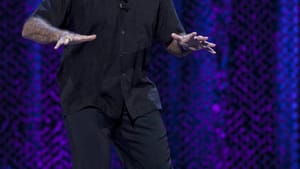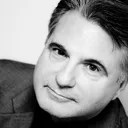Stay in the Loop
BSR publishes on a weekly schedule, with an email newsletter every Wednesday and Thursday morning. There’s no paywall, and subscribing is always free.
A verbal Picasso
Remembering Robin Williams (nine)

Some people like roller coasters; some people don’t. I suspect that if you are a Robin Williams fan, you like roller coasters.
Williams was a fine actor who worked, steadily, in movies since 1980 when he turned himself into Popeye. His most appreciated films, such as in his Academy Award-winning role for Good Will Hunting, showed him as a serious character actor. Hollywood loves to give Oscars to those who play against type — so Charlize Theron won for Monster, and Williams won for a role in which he played a sad and somewhat depressed academic. That was not who Williams was, at least onstage.
Perhaps his best and certainly his most iconic screen performance was in Good Morning, Vietnam. There, as a radio DJ, Williams could let loose his verbal pyrotechnics. It gave him the ability to stretch and to command a role like very few other roles he acted — you can see a montage of the best scenes from that movie here.
More in keeping with his screen presence was his restrained homicidal maniac opposite Al Pacino in Insomnia. Williams could even take on the ancient comedic custom of dressing in drag for a laugh in Mrs. Doubtfire (1993).
While Williams had a successful career in the movies, sometimes giving outstanding performances, there is nothing that he did on film that comes even close to his impact on stand-up comedy.
Creator of worlds
Williams did not come onto the stage and start to tell jokes. Instead, he came onstage and created an incredible world into which you were invited. It was a world in which there were no rules, and the very laws of physics, grammar, space, and time were shattered. Here he is at the Met — and from the top, it’s a roller coaster ride that will make you scream with delight.
Williams would take an idea and do a verbal Picasso on it, that is, approach it from several different angles, chopping it up and dissecting it, tearing it apart and putting it all back together again.
No subject was out of bounds. Here he is on alcohol and addiction.
In Robin’s world, there were no punch lines, or, perhaps, it is better to say that everything was a punch line. There were no setup lines — Williams jumped right to the end, then kept on hitting you with words, accented words, story-telling words, famous words from literature, movies, songs, words about families about to implode, and words about worlds that are about to explode. Like some stand-up comedian character created by James Joyce, Williams let fly his imagination, and one could only stare in wonder at the sheer inventive joy of it.
Luckily, we have the Internet — and there is a wealth of Williams’s routines available for viewing. Here he is on The Tonight Show Starring Johnny Carson, doing a riff on Shakespeare.
Making mayhem
The only other person who came close to Williams’s stage performances was his idol, Jonathan Winters. Together, they stand alone in their own school of two. There is no one who has been able to come close to their kind of comedy — or better, their kind of creative mayhem. Here is a 60 Minutes interview with Williams by Ed Bradley that includes a brief segment with Winters.
Strangely, both men had personal demons and lifelong battles with addiction. The most common reaction I have heard to the news of Williams's suicide is a question: Why does so talented and successful a person kill himself? It’s like asking why talented and successful people let themselves die of cancer. It’s the wrong question because depression and addiction are illnesses, just as deadly as cancer.
Sometimes a miracle happens, and a person beats a deadly disease; more often, he or she doesn’t. People often mistakenly say that a person "lost their battle" with cancer or depression or whatever — the fact is, there was no battle. There was just a relentless progression of an illness that ended in death. That’s why Robin Williams died. Better to remember why and how he lived. Now that was a miracle.
More remembrances by Rich Heimlich, Tom Hannigan, Maria Thompson Corley, Chris Predmore, Tara Lynn Johnson, Michael Lawrence, Gary L. Day, and Thom Nickels.
Sign up for our newsletter
All of the week's new articles, all in one place. Sign up for the free weekly BSR newsletters, and don't miss a conversation.

 Armen Pandola
Armen Pandola